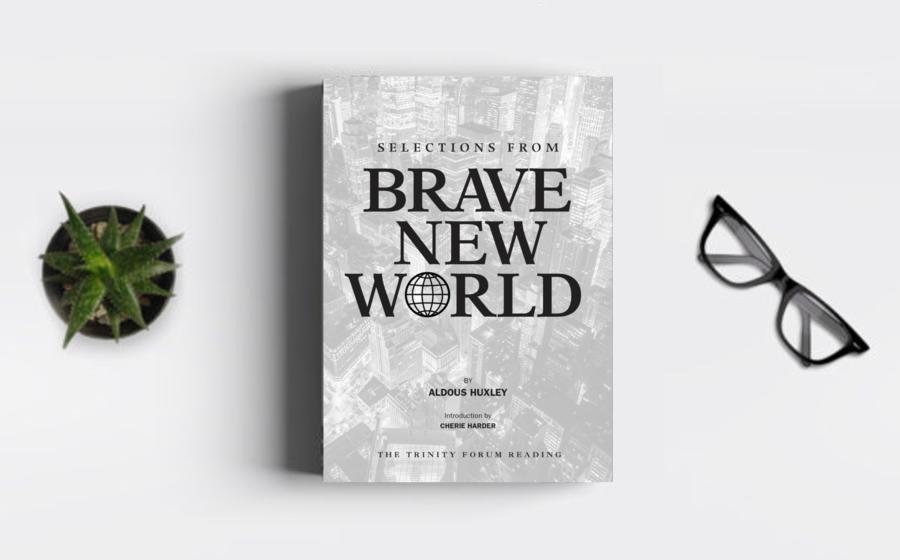Aldous Huxley's "Brave New World" stands as a seminal
work that scrutinizes the consequences of unchecked
technological advancement, social engineering, and the
pursuit of a utopian society. As we delve into the pages
of this dystopian masterpiece, it becomes apparent that
Huxley's narrative is not merely a cautionary tale; it
is a profound exploration of the human condition,
freedom, and the perilous allure of a seemingly perfect
world. This work rightfully claims its place among the
top books of all time, offering readers a chilling yet
thought-provoking journey into a future that challenges
the very fabric of our societal values.
At the
heart of "Brave New World" is the depiction of a World
State, a futuristic society where citizens are
conditioned from birth to fulfill specific roles, and
pleasure-inducing drugs, such as soma, maintain social
stability. In the tradition of literary worlds that
serve as reflections of societal constructs, the World
State becomes a thematic focal point, a dystopian
backdrop that Huxley employs to explore the consequences
of sacrificing individuality for societal harmony. The
novel transforms into a dystopian saga, where the
nuances of control, conditioning, and the pursuit of
happiness become central themes intricately woven into
Huxley's dystopian tapestry.
Huxley introduces
the concept of conditioning, where individuals are
molded from infancy to accept their predetermined roles
in society. In the tradition of literary examinations of
societal control, conditioning becomes a thematic
undercurrent that defines the science fiction landscape
of "Brave New World." The implications of shaping
individuals to fit into predetermined molds and the
trade-off between stability and individual freedom
become narrative devices, inviting readers to reflect on
the societal costs of maintaining order.
Conditioning becomes a speculative motif that resonates
with the literary tradition of exploring the
consequences of societal manipulation. Huxley's insights
add layers of complexity to the text, transforming the
novel into a work where the price of stability becomes a
central theme. Readers are prompted to contemplate the
ethical dimensions of molding individuals to conform to
societal norms and the impact on personal agency and
autonomy.
In the World State, citizens are
pacified and content through the use of soma, a drug
that induces feelings of euphoria and tranquility. In
the tradition of literary substances that alter
consciousness, soma becomes a thematic tapestry that
weaves through "Brave New World." The blissful escape
offered by soma and the trade-off between pleasure and
authentic experience become narrative devices, inviting
readers to consider the dangers of using substances to
maintain societal order.
Soma becomes a
speculative element that resonates with the literary
tradition of exploring the impact of mind-altering
substances. Huxley's exploration adds layers of nuance
to the text, transforming the novel into a work where
the pursuit of pleasure becomes a central theme. Readers
are encouraged to question the implications of relying
on substances to pacify individuals, the potential
consequences of escaping reality through artificial
means, and the ethical considerations of prioritizing
pleasure over genuine human experience.
Huxley
portrays a society where bureaucratic efficiency is
prioritized over individual expression and creativity.
In the tradition of literary critiques of dehumanizing
progress, the emphasis on efficiency becomes a thematic
undercurrent that defines the science fiction landscape
of "Brave New World." The erasure of individuality and
the consequences of valuing uniformity over diversity
become narrative devices, inviting readers to reflect on
the dangers of sacrificing individual expression for the
sake of societal order.
Bureaucratic efficiency
becomes a speculative motif that resonates with the
literary tradition of exploring the dehumanizing effects
of excessive control. Huxley's insights add layers of
meaning to the text, transforming the novel into a work
where the erosion of individuality becomes a central
theme. Readers are prompted to contemplate the perils of
prioritizing efficiency at the cost of personal
uniqueness, creativity, and the richness of human
diversity.
Huxley introduces the Savage
Reservation, an area outside the World State where
individuals live according to traditional and "savage"
customs. In the tradition of literary juxtapositions,
the Savage Reservation becomes a thematic tapestry that
weaves through "Brave New World." The clash between the
dystopian World State and the more primitive existence
outside its confines becomes a narrative device,
inviting readers to consider the consequences of
imposing a utopian vision on diverse cultural practices.
The Savage Reservation becomes a speculative element
that resonates with the literary tradition of exploring
the clash between different societal paradigms. Huxley's
exploration adds layers of complexity to the text,
transforming the novel into a work where the
confrontation between divergent worlds becomes a central
theme. Readers are encouraged to contemplate the ethical
dimensions of imposing a singular vision of utopia on
communities with diverse cultural practices and the
potential consequences of erasing traditional ways of
life.
In the World State, individual freedom is
sacrificed for the sake of stability and societal
harmony. In the tradition of literary examinations of
freedom and control, the sacrifice of individual
autonomy becomes a thematic undercurrent that defines
the science fiction landscape of "Brave New World." The
trade-off between stability and individual agency, the
consequences of relinquishing personal freedom for
societal order, and the ethical considerations of
prioritizing collective well-being over individual
autonomy become narrative devices, inviting readers to
reflect on the delicate balance between societal harmony
and personal liberty.
The sacrifice of individual
freedom becomes a speculative motif that resonates with
the literary tradition of exploring the tensions between
societal order and individual autonomy. Huxley's
insights add layers of nuance to the text, transforming
the novel into a work where the quest for stability
comes at the cost of personal agency. Readers are
prompted to contemplate the ethical dimensions of
prioritizing collective well-being over individual
freedom and the potential implications of a society
where conformity is valued over personal choice.
"Brave New World," it becomes evident that Aldous Huxley's dystopian opus is more than a cautionary tale; it is a poignant social critique that harmonizes the concepts of control, conditioning, soma, bureaucratic efficiency, the Savage Reservation, and individual freedom into a cohesive composition.






